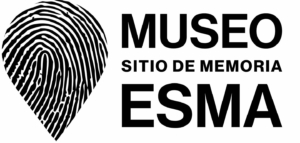As part of the activities linked to the ESMA Museum and Site of Memory’s candidacy to the UNESCO World Heritage List, a master class was held on December 12th, 2019 by Maider Maraña, international consultant, coordinator, and researcher for the UNESCO Program of Cultural Landscapes and Heritage of the University of the Basque Country in Spain. The Specialist highlighted the importance of addressing «in a reflective way» the inclusion and participation of different audiences in Sites of Memory and to consider tourism in these sites related to the Never Again, based on narratives connected to human rights.
«People assume we preserve these sites for future generations but it is hard for us to think we also do it for other cultures. We feel uncomfortable with the notion of tourism because we see it as a predatory thing. But if we don’t address this issue the stories get twisted and we make mistakes, such as turning the human rights perspective into a different thing», said the specialist, who denounced the lack of empirical research in the world proving the connection between tourism and peace, using as examples study cases she researched herself in these past few years.
She was joined by the executive director of the ESMA Museum and Site of Memory, Alejandra Naftal, who highlighted that «it is important that we keep memory alive and build intergenerational bridges to reflect on the past and the future». As part of the public event, which included a master class and a public conversation, Naftal expressed the need to reflect on the proposed issues in conjunction with other Sites of Memory. «Hopefully we will be able to continue thinking about Argentine and Latin American models for policies regarding Memory. We have a lot to contribute,» she said.
Federal Policies
After the conference, there was a public conversation called «Debates and Dilemmas around the Notion of ‘Ethical Tourism’ in Sites of Memory». Representatives from Argentine Sites of Memory joined Maider Maraña and presented their situations, agreeing on the need to articulate policies regarding this issue.
Ana Pecoraro, from El Faro de Mar del Plata, stated that «considering tourism is an important task with many sides», and that «we need to think about policies that promote this and also help local communities». Leo Fossati, from the Former 5th Precinct of La Plata, proposed «we leverage both internal and international tourism, just like institutions find support in many foreign instances». Also, Emiliano Fessia, from La Perla in Córdoba, stressed the importance of «consolidating institutional relations to strengthen the areas of debate» connected to these issues. Lastly, historian Lucas Rentero, director of the Eternautas agency, pointed out the importance of highlighting life in places where horror ruled for so long.
Cooperation Agreement
An agreement was signed at the event between the ESMA Museum and Site of Memory and the Auschwitz Institute, to present new accessibility features for foreign visitors and hearing-impaired audiences. «The idea is to build bridges and links between the people who work in Human Rights. We are very proud of this agreement. We offer our full assistance to support the protection of what is displayed here», said María Eugenia Carbone, head of the Auschwitz Institute’s Latin American Program.



